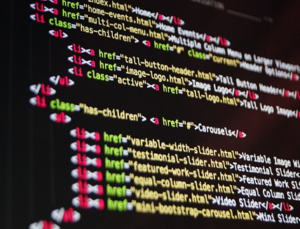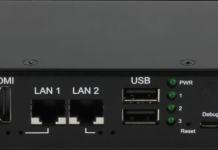
Looking to make your website?
Becoming a web developer or designer is a profitable career path. Almost every business needs a website to have an online presence. The demand is high, meaning you’ll have a constant income stream.
How do you start building a website from scratch? Developing the right skill set and best practices is the way to go. Read on and learn some tips about website coding.
1. Pick the Right Language to Code
You have lots of coding languages at your disposal. Using various programming types requires different skills. Depending on your project, you’ll likely use coding languages you’re not familiar with.
For example, website building requires using HTML, CSS, and JavaScript. These coding languages serve as the foundation for your future endeavors. A lot of aspiring web developers use HTML to start learning how website designs work.
Do you need to work on your website’s front- and back-end? Java and Swift are great even when you’re building a web-based application for your website. Before diving in and learning, you must ask yourself what you want to do before learning.
When you choose the right languages to focus on, you’ll save lots of time and effort. Pay attention and learn these coding languages in the right order. Never learn CSS without understanding HTML since the former builds on the latter.
Here are some of the best web development languages you can try:
1. PHP
Hypertext Preprocessor (PHP) is a scripting language used for simple and dynamic sites. Its main function is for the server-side of the website. Platforms like Drupal, WordPress, Flickr, and Facebook use this coding language.
PHP web development supports lots of free and open-source extensions. It includes:
- .NET
- Apache
- Bzip2
The language can access different databases like MySQL, Oracle, and more. Some PHP functions are comparable to the C language. You can write more plugins using C to add more functionalities to PHP.
2. Python
Python is one of the most popular programming languages around. It gained popularity because of its high applications in various IT sub-fields. It means you can use this language if you’re aspiring to become a video game creator.
Despite its high-level uses, Python is beginner-friendly. Its syntax is straightforward and can support different tools and libraries. You can use it to develop your website’s back-end using the Django framework.
3. Java
Like Python, Java is a well-liked coding language. Its web frameworks are remarkable, as well as its well-maintained libraries. It’s open-source and object-oriented, stable, and easy to use.
Java has the JVM (Java Virtual Machine), allowing it to run on different platforms. Web development with Java limits security risks and manages memory storage automatically. It’s the best language for making complex websites.
However, it’s difficult to learn because of these features. As a beginner, you’ll likely struggle with its complex codes. Small-scale web development processes are rare in Java, making it better to learn after Python or other beginner languages.
2. Focus on a Single Task at a Time
As you learn how to code a website, it’s tempting to tackle various directions. It’s often a mistake thinking that doing this makes you learn as much as you can. The truth is that it hurts your learning process in the long run.
A better practice is to choose a task or coding language and give it everything you have. For example, you want to learn how to write a website’s front-end code. Complete it first before moving on to components that need back-end coding.
Pick a task that isn’t high-level right off the bat. Start with smaller projects and work your way as you learn. It’s tempting to start with lofty goals in mind.
Never accomplish the fifth task on your to-do list. Go through the first to fourth tasks first to make better sense of your learning. The worst thing you can do is to learn without paying attention to the basics.
You can go from coding HTML heading tags to coding mouse movements using JavaScript within the day. You’ll eventually get there, as long as you persevere. Trust in the learning process and be patient.
3. Practice Whenever Possible
Regardless of your skill level, you must never stop practicing. Even the highest-paid web developers and designers won’t stop looking for new things to learn. Remember, the web development industry is changing almost every day.
You need not adopt the mindset immediately. However, it’s better to keep on learning and practicing as web development evolves. Never stop when you become familiar with your skillset.
The internet has lots of resources that help polish your coding skills. Lots of online coding courses and YouTube videos are available to take your coding to the next level. You can even check this .NET OCR library for more information.
These resources exist to practice the things you already know. It supplements your skillset and develops new ones as you go along.
4. Be Agile
As said above, technologies involved in web development are always evolving. It has a huge impact on your learning because the language can change alongside it. For better or worse, this fact is immutable.
For example, a day will come when people stop using Java. Whether it’s because of newer technology standards or other reasons, languages will eventually fall out of the loop. At the same time, newer coding languages will pick up traction.
You won’t stop learning as a developer if you want to stay as one. You must be agile enough to keep up with the new codebases and processes. Always be open to new ideas and tackle these changes head-on.
5. Never Let Failure Discourage You
As a website coder, you’ll fail more times than you’ll ever succeed. It’s common to see lines of codes with multiple exceptions while learning. Never let this discourage you.
If every website ran without bugs and updates, learning to code won’t be a necessary skill. Sometimes, the code you wrote might be a little off. Other times, it won’t work or works in a way you never imagined.
Regardless, experiencing these hardships is part of the learning process. You’ll never learn anything if you don’t experience failure.
Read this also for Information: Learn how to code a website?
Bonus: Never Hesitate to Ask for Help
No matter how skilled you are as a website developer, asking for help is important. The process of making a website isn’t a one-man process. You’ll often work as part of a team of other developers when you become a professional.
When running into a problem or an error, turn to people with the right skillset. Make the most out of their code expertise and learn from them. If you’re stuck, a fresh perspective and an extra pair of eyes are all you need to solve the problem.
Regardless of your personality, you’ll learn faster if you have a mentor. Nothing makes it easier to learn than having someone to give you feedback. It matters not whether it’s online or in-person.
Don’t feel embarrassed to ask even the simplest of questions. You must be comfortable asking for answers, even if the answer might be obvious. It’s gratifying to find new ways of tackling website code, especially when it’s more efficient.
Always take advantage of other people’s knowledge as a resource. In return, never hesitate to help others out whenever it’s appropriate. However, it’s only possible once you’re comfortable and educated.
Other Skills to Develop as a Website Coder
Successful web developers have the following characteristics. It’s what makes them better at coding websites. These skills are qualities that you must adapt to be a better person:
Communication Skills
Again, web developers work with teams. To ensure the fulfillment of website goals, you must be open to communication. If you work as a part of a bigger company, have the skill to translate jargon into something understandable for non-technical members.
Having good communication skills also minimizes misunderstandings. It ensures you deliver the right website according to the client’s expectations.
Patience
Websites are never fully complete. Clients often go back to make you fix even the smallest details. It sometimes requires tedious adjustments, especially when they’re demanding.
Whenever clients request last-minute updates, maintain your patience. You can reinforce it using strong communication skills. The better you talk with a client, the less likely for your website development to go on forever.
Perfectionism
Most successful website developers always check and double-check their code. Web developers must have extreme attention to detail to make websites function perfectly. A single mistake can break your entire website.
As a web developer, you have a limited margin for error. Mistakes are costly especially when you’re in a time-crunch. If the client has a specific date for their website launch, you must ensure it works without issues.
Learn Website Coding Today!
With these website coding tips, you’ll have a better time learning how to build a website. Never hesitate to ask for help when you feel stuck. Every developer knows the hardships of learning, so they’re rooting for you.
Need more web development tips? Consider reading our other guides.


















